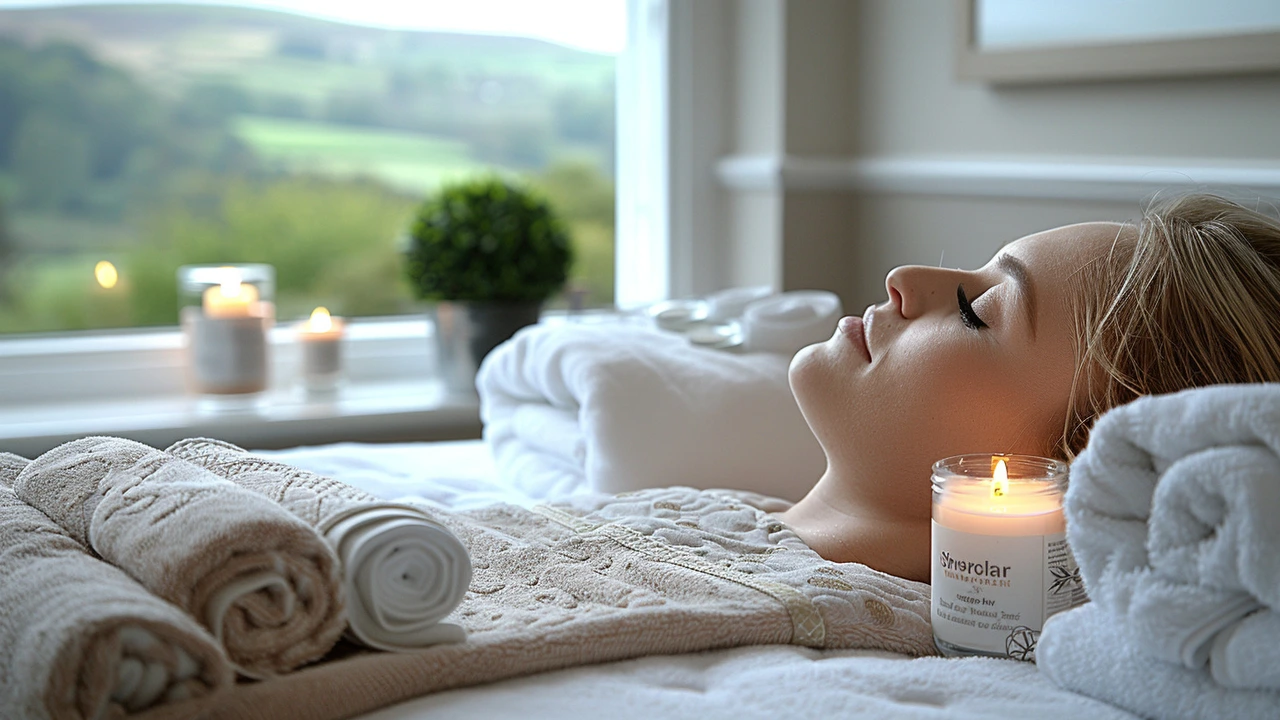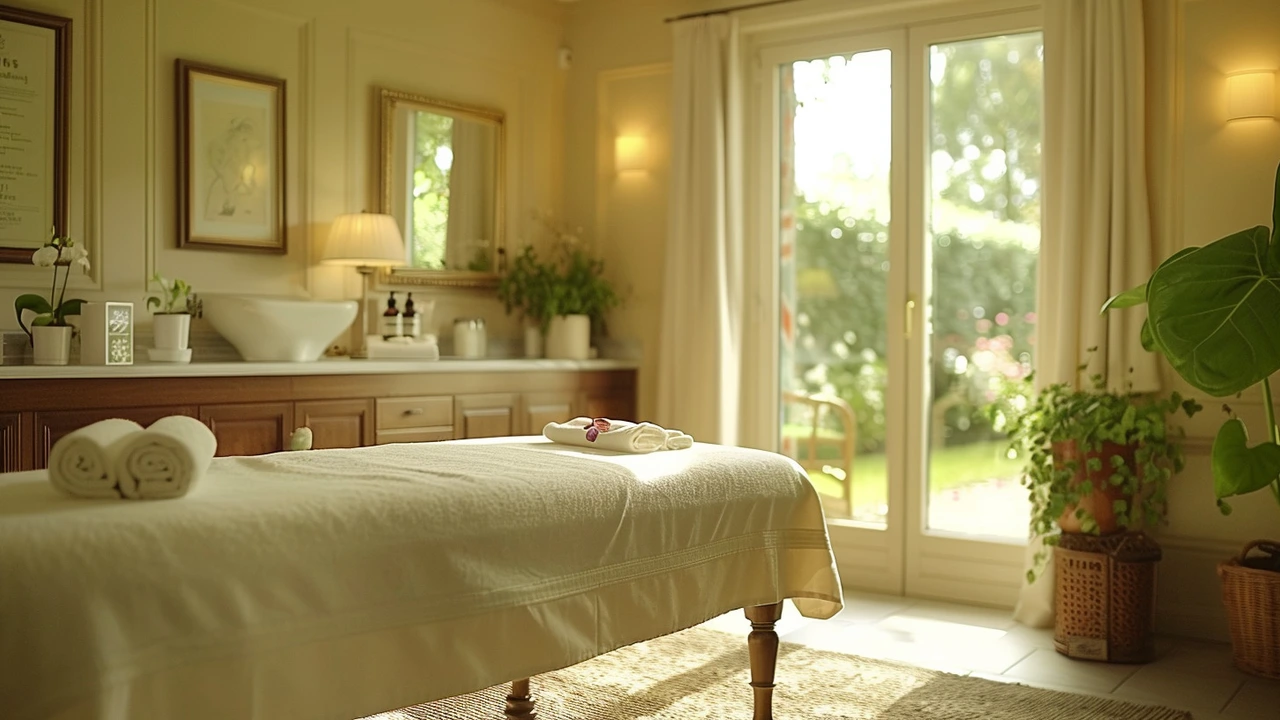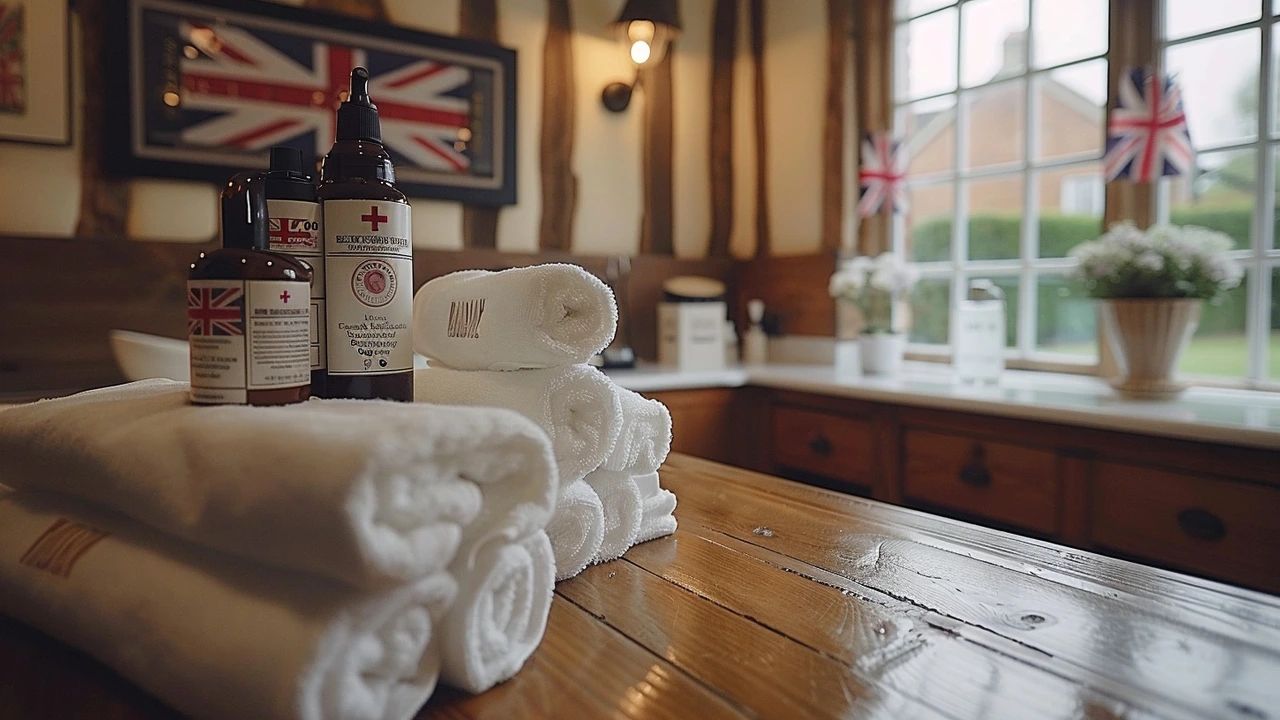Unlocking the Benefits of Medical Massage for Wellness
 Jun, 19 2024
Jun, 19 2024
Medical massage is more than just a way to pamper yourself. It's a therapeutic practice that offers multiple health benefits. Unlike regular massages that aim for relaxation, medical massages target specific medical conditions to improve your overall health and well-being.
From reducing pain to enhancing mobility, medical massage has become an essential part of many people's wellness routines. This article will delve into what medical massage entails, its health benefits, and practical ways to incorporate it into your daily life. Read on to discover tips and interesting facts about this powerful yet often underestimated therapy.
- Understanding Medical Massage
- Health Benefits
- How to Integrate into Your Routine
- Tips and Interesting Facts
Understanding Medical Massage
Medical massage has been gaining traction as a reliable method to deal with various health issues. Unlike regular spa massages, medical massages are tailored treatments aimed at addressing specific medical problems. These treatments are often prescribed by healthcare professionals and are typically part of a broader clinical plan.
The main difference between medical massages and traditional relaxation massages lies in their purpose. While relaxation massages are all about unwinding and de-stressing, medical massages are used to alleviate pain, improve mobility, and support recovery from injuries or surgeries. Precise techniques are used to target problem areas, offering a targeted approach to healing.
Medical massage therapists undergo specialized training to understand the muscular, skeletal, and nervous systems. This specific knowledge helps them to effectively manipulate the muscles and soft tissues to promote healing. Some common techniques used in medical massage include trigger point therapy, myofascial release, and deep tissue massage.
"Clinical evidence has shown that medical massages can significantly reduce pain and improve function in patients suffering from chronic pain conditions," says Dr. John Murphy, a leading expert in physical therapy.
It's worth noting that although the term 'medical' implies a clinical setting, these massages can also be incredibly soothing. They often involve therapeutic stretching and carefully applied pressure, making it a holistic treatment that benefits both body and mind.
Medical massages can help with a range of conditions. For instance, individuals who suffer from chronic back pain, neck stiffness, or even migraine headaches may find relief through these specialized treatments. Patients recovering from surgeries or sports injuries can also benefit significantly, as the massage helps to speed up the healing process by increasing blood flow and reducing inflammation.
Many studies have catalogued the benefits of medical massage. A broad survey published in the International Journal of Therapeutic Massage & Bodywork highlighted that over 75% of patients reported significant alleviation of symptoms after consistent sessions. These findings make a strong case for the integration of medical massage into regular wellness routines.
In addition to physical benefits, there are also mental health advantages. Regular medical massage sessions have been linked to reductions in anxiety and depression. The gentle manipulation of muscles releases endorphins, the body’s natural mood elevators, thus contributing to an overall sense of well-being.
The origins of medical massage date back centuries, with different cultures developing their own methods for healing through touch. Whether it’s the ancient Chinese practice of Tui Na or the more modern techniques developed in Western medicine, the basic principle remains the same: to use manual manipulation to aid the body’s natural healing processes.

Health Benefits
Medical massage therapy is increasingly being recognized for its myriad health benefits. One of the main advantages is pain relief. Whether it's chronic pain from conditions such as arthritis or back pain due to sedentary lifestyles, medical massage can help alleviate discomfort. Studies have shown that regular medical massage sessions can reduce pain levels in individuals suffering from chronic pain conditions.
Another significant benefit is the improvement in circulation. Medical massage techniques stimulate blood flow, which helps in carrying essential nutrients and oxygen to tissues and organs. This enhanced circulation can lead to better overall health and quicker recovery times for injuries. People recovering from surgery or injuries often find that medical massage helps them get back on their feet faster.
Medical massage is also known to reduce stress and anxiety. By targeting specific muscle groups and pressure points, this type of massage helps in lowering the levels of cortisol, a stress hormone, in the body. Reduced cortisol levels can lead to improved mood and mental health. A study by the American Massage Therapy Association found that individuals who received regular medical massages had significantly lower levels of anxiety and depression compared to those who did not.
According to the Mayo Clinic, "Medical massage can reduce stress hormone levels in the body, leading to a reduction in anxiety and depression symptoms."
Another remarkable benefit is the enhancement of flexibility and mobility. As we age, our muscles and joints can become stiff, reducing our range of motion. Medical massage can help to loosen tight muscles and improve flexibility, allowing for greater ease of movement. This is particularly beneficial for athletes who require optimized performance and for older adults who want to maintain their physical independence.
Additionally, medical massage has been linked to improved immune function. Regular sessions stimulate the lymphatic system, which is crucial for defending the body against infections. A strong lymphatic system ensures that toxins are efficiently removed from the body, enhancing your overall immune response. Research suggests that those who receive regular medical massages have a stronger immune system and are less prone to colds and other common illnesses.
One cannot overlook the mental clarity and focus that come with regular medical massage sessions. By promoting relaxation and reducing stress, medical massage can also improve sleep quality. Better sleep translates to better mental clarity, cognitive function, and overall productivity. Many people find that incorporating medical massage into their routine helps them to think more clearly and concentrate better on their daily tasks.

How to Integrate into Your Routine
Integrating medical massage into your routine can seem daunting initially, but with a few practical steps, it can become a seamless part of your lifestyle. The first approach is to view your medical massage sessions as an essential part of your self-care, much like exercise or proper nutrition. Instead of considering it an occasional luxury, aim to schedule regular sessions.
Start by researching reputable clinics and certified therapists in your area. Professionals specialized in medical massage can tailor the treatment to your specific needs. Talk with them about your health conditions and goals to ensure the session targets the right areas. Consistency is key, so try to book your sessions in advance to avoid missing out due to a busy schedule.
Next, consider the timing of your sessions. Many people find it beneficial to schedule massages during weekends or at the end of the day, as this not only fits better into their routine but also helps them unwind. If you have a physically demanding job, more frequent sessions might be required to alleviate muscle tension and prevent injuries.
Combining medical massage with other wellness practices can enhance the benefits. For example, pairing it with exercises like yoga or Pilates can improve your flexibility and reduce stress. Diet also plays a crucial role. Staying hydrated and consuming anti-inflammatory foods can complement the therapeutic effects of the massage.
Moreover, actively participate in your treatment plan. Your therapist may recommend stretches or exercises to do at home. Following these guidelines can prolong the benefits of your in-clinic session. Keep a journal to track your progress and note any changes in symptoms or overall well-being.
An important tip is to communicate openly with your therapist. Giving feedback helps them adjust techniques and pressure according to your comfort and needs. It's a collaborative process aimed at maximizing your health benefits. According to a report by the American Massage Therapy Association, 67% of individuals who received a medical massage reported significant improvement in muscle-related conditions.
"Regular therapeutic massage has been shown to significantly reduce pain and improve the overall quality of life," says Dr. Lawrence Klein, a prominent physical therapist. "When incorporated into a balanced routine, it can be a powerful tool for managing chronic conditions."
Lastly, educate yourself about the different types of medical massage available. Techniques like deep tissue massage, myofascial release, or trigger point therapy might offer varied benefits depending on your specific needs. Understanding these options can help you make informed decisions and discuss them with your therapist.
By taking a systematic and informed approach, integrating medical massage into your routine can become easier and more effective. The goal is to make it a regular part of your self-care regimen that supports your overall health and wellness.

Tips and Interesting Facts
If you haven't yet included medical massage in your wellness routine, you might be surprised by just how beneficial it can be. Here are some useful tips and intriguing facts about medical massage therapy.
1. Tailored Therapy
Unlike regular massages, a medical massage often focuses on targeted areas of the body based on specific health needs. This makes it an effective therapy for treating conditions like chronic back pain, arthritis, or even migraines. By concentrating on problem areas, it ensures you get the most out of each session.
It's crucial to communicate openly with your therapist about your health issues. They can then tailor the session to address your specific needs, ensuring maximum benefit. Don't hesitate to ask questions or provide feedback. A collaborative approach between you and your therapist can significantly enhance the efficacy of the treatment.
2. Certified Practitioners
When searching for a medical massage therapist, ensure they are certified and highly trained. Certification guarantees they possess the necessary skills and knowledge to perform therapeutic massages safely and effectively. Certified therapists often undergo extensive training that includes hands-on practice and detailed coursework.
Always ask to see credentials if they aren't openly displayed. Licensed practitioners will usually be happy to provide proof of certification. Your health is paramount, so never settle for less when it comes to quality care.
According to the Australian Association of Massage Therapists, "A certified medical massage therapist has completed rigorous training and is equipped to provide treatments that can make a real difference to your health."
3. Interesting Facts
Did you know that medical massages are sometimes recommended by doctors? For example, after surgery, medical massage can help with recovery by improving circulation and reducing scar tissue. It's a less-known but highly effective adjunct to standard medical care.
Massage therapy isn't just for adults. Pediatric massage therapy is becoming increasingly popular and is used to treat children with various conditions, from anxiety to muscular dystrophy. This gentle approach can significantly improve a child's quality of life.
Additionally, medical massage has been found to help with mental health issues. A research study published in the journal of Anxiety Disorders highlighted that patients undergoing medical massage reported a significant reduction in symptoms of anxiety and depression. By releasing endorphins, it provides a natural way to boost mental well-being.
4. Tips for Maximizing Benefits
To get the most out of your medical massage sessions, keep these tips in mind:
- Consistent Schedule: Regular sessions maximize the benefits. Aim for at least once a month, or more frequently if you're dealing with chronic issues.
- Hydration: Drink plenty of water before and after your session. Hydration helps to flush out toxins released during the massage.
- Open Communication: Communicate your needs and concerns with your therapist. This will help them adjust the treatment to suit you better.
- Post-Massage Care: Follow any recommendations your therapist gives you. This might include stretching exercises or avoiding strenuous activities for a day or two.
Integrating medical massage into your wellness routine can lead to significant improvements in your overall health. By being proactive and informed, you can make the most of this powerful therapy.